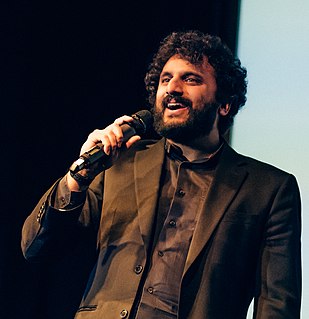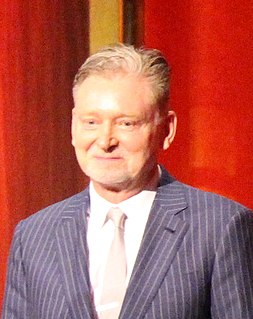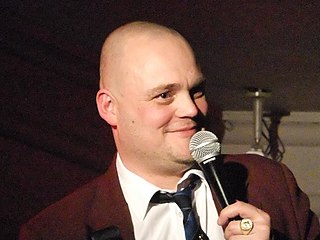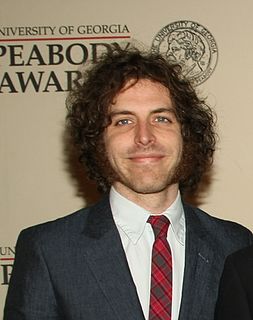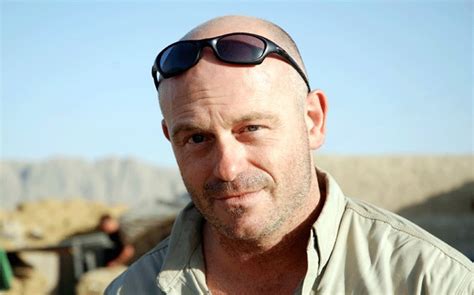A Quote by Nish Kumar
There's a 'Seinfeld' episode, where he talks about why he can't get angry, because his voice rises to a comedic pitch and no one takes him seriously - and that's true of me, too.
Related Quotes
I met the real George Steinbrenner on only one occasion when he actually came and played himself on an episode of 'Seinfeld.' He seemed to really enjoy himself. I did not get to know him, but the fact that he allowed himself and his beloved team to be satirized on our show is an indication to me of his true character.
When we developed the 'Seinfeld' show, we took a bet on Jerry Seinfeld, who was not a household name. But Jerry had a voice. He was appearing on 'Late Night', on 'The Tonight Show', had some commercials out there, his voice of observational comedy, looking at the world around him, that voice was really starting to come into its own.
Seriously, if you want to get inside the head of a stand-up comic, you could do a lot worse than reading Steve Martin's Born Standing Up, all about how he developed his career and his creativity as a comedian. Lots of what he talks about is relevant to anyone in the creative arts - you find yourself, your voice, your technique and then maybe luck calls.
I had to get the voice back, the precise pitch of Sid's voice and I'd forgotten that I'd pitched him higher than my regular voice, so that was a little difficult to begin with. It was especially hard because we started recording in the morning so I had to warm up a lot and my usual voice is a little more gravelly.
If the pitch starts with a sob story, I'm out. If the pitch talks about personal issues, I'm out. If the pitch starts off with how big the market opportunity is, I'm out. If the pitch tells me what is unique about the product, how it can make a profit, and it's an area where I have expertise, I will read on.
There are Christians who think and speak altogether too much about the power of Satan. They think of their adversary, they pray about him, they talk about him, and he looms up greater and greater in their imagination. It is true that Satan is a powerful being; but, thank God, we have a mighty Saviour, who cast out the evil one from heaven. Satan is pleased when we magnify his power. Why not talk of Jesus? Why not magnify His power and His love?
No one really needs me," he says, and there is no self-pity in his voice. It's true his family doesn't need him. They will mourn him, as will a handful of friends. But they will get on. Even Haymitch, with the help of a lot of white liquor, will get on. I realize only one person will be damaged beyond repair if Peeta dies. Me. "I do," I say. "I need you.
Anyway, these books I love, they’re all books by men—every last one of them. Because if it’s unseemly and possibly dangerous for a man to be angry, it’s totally unacceptable for a woman to be angry. I wanted to write a voice that for me, as a reader, had been missing from the chorus: the voice of an angry woman.
What's always got me is the fact that when people talked on the telly about Iraq, before Afghanistan kicked off, you'd get only these public-school-type army officers talking about what was going on out there. I kept thinking, 'Why don't we get the true voice of the squaddie? Why don't we hear from the lads on the battlefield?'
